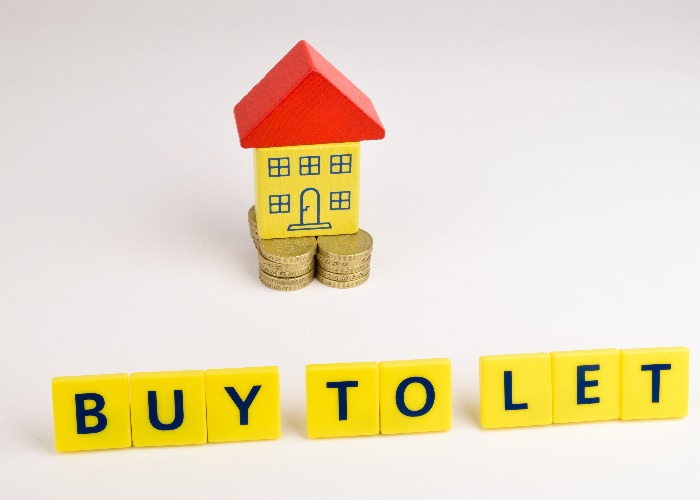Opinion: why buy-to-let landlords are here to stay

Last week we explored the idea that traditional buy-to-let landlords are on their way out. Alan Ward, chairman of the Residential Landlords Association, tells loveMONEY why he thinks that's just not true.
It is tougher than ever to be a buy-to-let landlord these days – with a combination of draconian tax changes and increasing regulation making it an increasingly challenging landscape.
So it's perhaps understandable why some people might think that time is up for traditional landlords, but I think they're wrong.
Here's why.
Get a landlord insurance quote from Axa
Supply will keep falling short
Despite the Government’s fixation with corporate investors and build-to-rent, all the evidence is that it is extremely unlikely they will be able to create enough homes to meet increasing demand across the board.
Already, one in five households now lives in the private rented sector, with the Royal Institute of Chartered Surveyors (RICS) predicting an additional 1.8 million homes to rent will be needed by 2025 – a 38% increase.
Even major housebuilders have conceded that buy-to-let investors are vital when it comes to getting big building projects off the ground.
Traditional landlords aren’t going anywhere
There is no doubt that it is difficult being a buy-to-let landlord, but will they be extinct in 20 years? I don’t think so.
Demand is increasing at a furious pace.
With one in four households expected to be living in the private rental sector by the early 2020s and increasing numbers of families and elderly people looking to rent homes, what we need is more landlords, not fewer.
While build-to-rent is on the increase, figures from the RLA’s research arm PEARL show build-to-rent accounts for just 2% of the market. And just last month the Office for Budget Responsibility warned of “subdued growth in residential investment.”
Tax and regulation changes have seen many landlords report they will not be investing further or are considering selling off homes, and while this is no doubt true of some, the figures tell a different story.
Since 1999, the number of households in the private rental sector has increased by 126% to 4.8 million, with more than 90% of all new households created since the coalition Government came to power in 2010 being privately rented, according to the Government’s own figures.
What do the housebuilders say?
Major housebuilder Berkeley Group cited recent tax increases affecting private landlords as a reason the firm is not increasing housebuilding, saying it is ‘impossible’ to boost housing supply beyond its current plans.
Landlords, they noted, traditionally “buy early in the cycle and provide security of cash flow to enable complex, capital-intensive developments to be brought forward.”
Therefore, the creation of the new homes the country so desperately needs in this time of housing crisis is closely linked with private landlords’ ability to provide finance.
Get a landlord insurance quote from Axa
What changes have landlords seen over the last few years?
Landlords were left reeling in 2015 when George Osborne announced plans to restrict mortgage interest relief to the basic rate of Income Tax and introduce a 3% Stamp Duty levy on the purchase of new homes to rent.
The full impact of the decision to tax landlords on turnover rather than profit has yet to be felt, with the scheme being sneakily phased in over a period of years.
While this change does not affect landlords without mortgages on their properties, the Government has been accused of ‘moving the goalposts’ by those who had carefully planned their investments according to previous legislation.
It is the impact of changes to MIR that is most likely to bring about a decline in the number of landlords, should one occur, with most new investors likely to buy with a high proportion of equity.
What do landlords want?
If the Government wants to see continued investment in new homes to rent and encourage housebuilders to increase construction levels, then rather than taxing new homes it must introduce smarter, pro-growth taxation that recognises the rental market as a crucial part of addressing the housing crisis.
Landlords ask for nothing more than a fair deal from the Government – clear, practical and workable legislation, reducing the regulatory burden on responsible and professional landlords to create a healthy and robust private rented sector for the benefit of all.
Compare buy-to-let mortgages with loveMONEY
Alan Ward is the Chairman of the Residential Landlords Association. It offers support, advice, information and training, as well as campaigning on behalf of landlords. Visit ww.rla.org.uk for more.
The views in this article do not necessarily reflect those of loveMONEY.
In case you missed the opposing argument, head this way to read why smaller buy-to-let landlords won't be around in 20 years.
This article contains some affiliate links, which means we may receive a commission on any sales of products or services we write about. This article was written completely independently.
Comments
Be the first to comment
Do you want to comment on this article? You need to be signed in for this feature